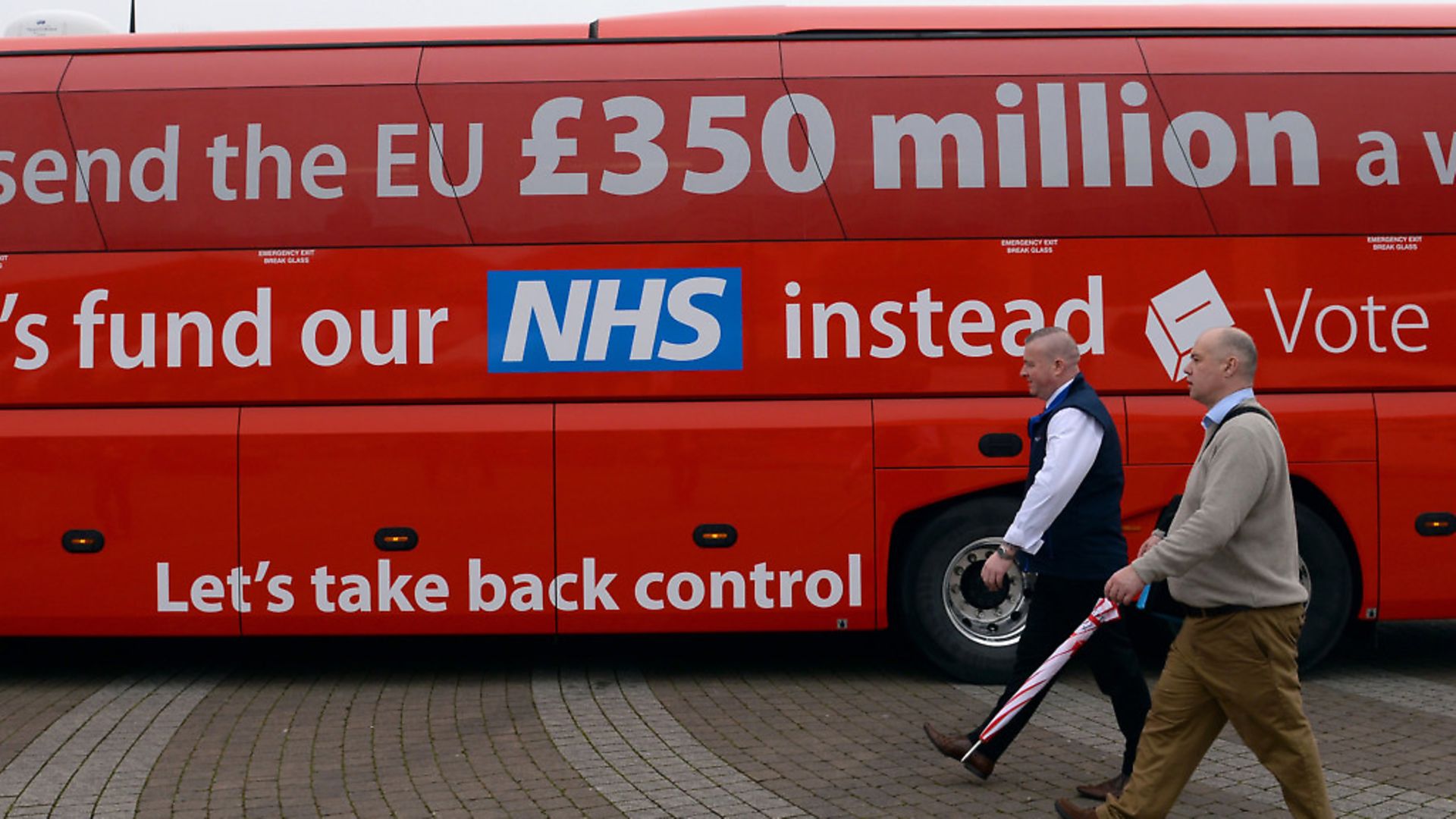
The Advertising Standards Agency (ASA) has come under pressure to call for a similar regulatory body to scrutinise political advertising as the general election looms.
Amazing. The CEO and Chair of the Advertising Standards Authority both support the regulation of political ads they said yesterday at an inquiry. Watch the clip of their CEO proposing the solution belowhttps://t.co/ccFfXcDGdI .'If you had a statute [vote in parliament] that
— Reform Political Advertising (@clearpolitic5) November 6, 2019
Lords told the ASA that citizens’ “brains go into a spin” when a company like Persil can be told off for misleading ads, but “Boris Johnson’s bus” goes ignored.
The ombudsman, which currently only handles consumer advertising, was called on the Lords Democracy and Digital Technologies Committee to “absolutely and unambiguously” recommend that political advertising be regulated in the same the way consumer ads are.
Public concern over misleading political ads has peaked again on the eve of the election campaign period, when both the Conservatives and the Liberal Democrats were found to have shared misleading material.
WATCH: Fact checker slams Tories for doctoring video of Keir Starmer interviewThe ASA currently regulates consumer ads but has always steered clear of commenting on political campaign adverts.
Although it can upbraid the government over false claims – such as the recent banning of a series of government adverts about Universal Credit – it does not get involved in campaign materials.
MORE: ‘Myth-busting’ government ads on Universal Credit banned for misleading the public
Both Lord David Currie, ASA chair, and Guy Parker, the ASA CEO, said they personally believe a political advertising regulator is needed. But the formal position of the ombudsman is not to make any such regulation as it is “essentially a political judgement”, said Lord Currie.
But the committee challenged him on this.
“If you do think individually [that] it would be a sensible thing to do, I genuinely don’t understand why the ASA can’t just turn round and go ‘look somebody needs to set this up once and for all’,” said committee member Baroness McGregor-Smith, pointing out that government would pay attention to this demand.
“Because this is going to get … this is completely uncontrollable, and it’s going to get even more uncontrollable since the advent of social media,” she continued.
Lord Currie also told the committee that the ASA has the expertise to help set a regulator up, even if it wouldn’t take on the job itself in order not to undermine public trust in their current role.
Parker said that political will was needed to move the issue onwards.
He said: “If you had a statute that mandated the regulation of political advertising you’d have that mandate … were that the case we’d be in a different world that we’re in now.”
Lords questioning the ASA also said it was difficult for the public to understand why the ASA is silent on the issue and that it could even erode trust in the ombudsman’s work for consumer advertising.
“When the consumer sees that you do not play a role in one very very important aspect of their lives, which we’re certainly moving into right now, haven’t you in an odd sense undermined trust in what you do do?” asked Lord Puttnam.
“Because you are the only authority that people look to. So that when you ignore Boris Johnson’s bus, but would come down like a ton of bricks on ‘Persil washes whiter’, because it’s not provable – the consumers, or certainly the ones I’ve talked to, their brains go into a spin. They don’t get that.”
“What I’m saying is, you’re a powerful trusted body … why haven’t you absolutely and unambiguously come out and said ‘there is a lacuna in the middle of public life. We can’t fill it but we know how to fill it. Government: get it filled.’ What’s to stop you? You would be very respected.”
Advertisers themselves have begun calling for a political advertising regulatory body, such as the industry-led Coalition for Reform in Political Advertising, which has gained momentum in recent months.
MORE: Inside the industry campaign to stop the rot in political advertisingThe Coalition’s co-founder Alex Tait said: “I think the public has had enough of the fact that political advertisers can say almost whatever they want in their ads.
He added that it was “refreshing” to hear that the Lords Democracys and Digital Technology Committee is considering recommending a regulator.
“This is very important but ultimately we need to all keep up the pressure on the government to implement these recommendations,” continued Tait. “It is amazing to think that despite all the proposals for the modernisation of the rules around political ads, literally nothing of significance has changed to date. This has to change.”









